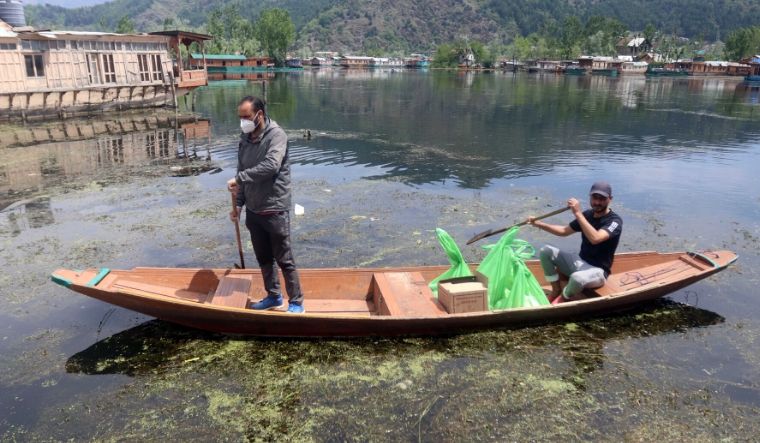On August 5, 2019, when the people of Jammu and Kashmir woke up to a bright, sunny summer day, little did they know that Article 370 of the Constitution was being abrogated. When they got up, they found their cellphones dead. There was no internet connectivity, no cellular network and various restrictions. Everyone was glued to their television screens and heard of the arrests of Kashmiri political leaders and the political changes. Curfew was imposed in many areas, and severe restrictions were imposed on the media.
We are now on the verge of the first anniversary of that event, yet the Kashmir valley is still barred from proper internet and under several restrictions while many political leaders are still under detention or house arrest.
It was announced that the abrogation of Article 370 will bring development, with several industries coming into Kashmir, but this has proved a forlorn hope. Businessmen will invest where there is a peaceful climate, but conditions are still disturbed in the valley, with sporadic incidents of militancy occurring frequently. Few will invest in this charged atmosphere.
We present our own assessment of the situation in Kashmir:
(1) To restore normalcy, there must be democratic space for the people. This requires a freely elected legislature, freedom of speech and freedom of the media. Presently, these are all missing, though a clampdown was imposed almost a year back. If this state of affairs continues longer, it will inevitably drive the Kashmiri youth towards the ranks of the militants. People must be allowed to let out steam, otherwise their resentment at being bottled up will sooner or later erupt violently.
We submit that all political leaders and juveniles under detention should now be released, cases against them withdrawn, freedom of the media restored and preparations made for early elections to a state Assembly. This alone can restore peace in Kashmir.
(2) The status of Jammu and Kashmir as a full state should be restored forthwith, as it is humiliating to its people to continue it as a Union territory. Jammu and Kashmir has a population of about 1.25 crores, while much smaller states—like Sikkim (population about 6 lakh), Manipur (population about 27 lakh), Arunachal Pradesh (population about 13.8 lakh), Goa (population about 14.6 lakh) and Himachal Pradesh (population 68.6 lakh)—enjoy full statehood. So, to keep Jammu and Kashmir as a Union territory is humiliating to its people and only adds to the sense of alienation from India that many people feel.
(3) 4G internet must be restored immediately. Kashmir is presently running on 2G internet, which is causing immense problems and hardship for the people.
G word in this terminology means 'generation'. While the whole world, including India, is about to go into 5G or 5th generation, Kashmir has been relegated to 2G, that is 2nd generation, which was a thing back in 2011. While 2G gives a speed of 14-64KBPS, 4G can offer a speed of 100MBPS to 1GBPS. That is comparing a bullock cart to a bullet train.
Bill Gates wasn't kidding when he said, "If your business is not ok on internet, then your business will soon be out of business."
The budding entrepreneurs, the vintage business houses, the preeminent hubs of commerce and the whole Kashmiri economy was evolving and growing under the 4G internet, but the past year has been no less than a nightmare for Kashmiris. Not only the business part but the education sector was worst hit because of this internet shackle. While students from all over India and the world have fast access to information and study material, Kashmiri students struggle to understand what their teacher is saying during an online class. Numerous students missed their exam deadlines, job appointments and other things because of this internet downgrading. Who will take the blame for their loss? The banking sector, agriculture sector, power, law enforcement and everyone else have been adversely affected by this downgrading.
The world is going through a tough phase. We have COVID-19 pandemic and everyone in the world is endorsing "work from home", "study from home" and in fact "everything from home". But that "from home" phrase needs 4G internet to be effective, and sadly Kashmir is without that.
We submit that the Central government should now display statesmanship, and take the measures mentioned above soon, so that peace, commerce and Kashmiriyat is revived again.
Justice Markandey Katju retired from the Supreme Court in 2011 and is president of the Chinar Foundation. Dr Athar Ilahie is a Kashmiri medical student and joint secretary of the CHINAR Foundation.
The opinions expressed in this article are those of the author's and do not purport to reflect the opinions or views of THE WEEK



